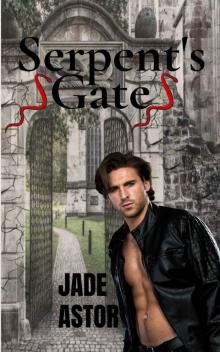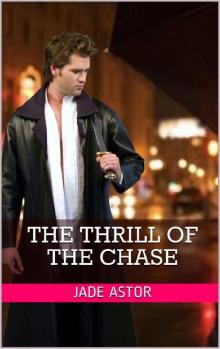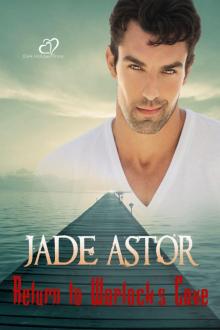- Home
- Jade Astor
Murder among the Palms Page 21
Murder among the Palms Read online
Page 21
At least he knew he hadn’t imagined the entire encounter. He still had the information that would help him complete his essay, after all—and in his right hand, he held Boris’s sketch.
Later that afternoon, after he’d typed a draft of his essay on cathedral structure into one of the public computers set up in the private library at his college, Luke ran a search on the name of Boris’s alleged principality, Schattenberg. He’d been tempted to investigate the moment he returned to his rooms, but two considerations stopped hm. One, he desperately needed to finish his essay, which was just few hours shy of being late. Two, and more importantly, he dreaded the perhaps inevitable discovery that everything Boris had told him had been a fib designed to make him look and feel foolish.
His suspicions seemed to be confirmed when his first few attempts on different search engines turned up nothing. Then, suddenly inspired, he changed the spelling from his first guess, “Shattenburg” to “Schattenberg” and tried again. At last, a short but serviceable page of results appeared.
So Boris had been telling the truth, after all. He even saw the name Prince Georg, the ill-tempered half brother. Though no photo came up, the entry profiled Georg as the current ruler of the tiny, isolated territory, which consisted of one small city and a great deal of mountain territory. Remarkably, Schattenberg still preserved a semifeudal form of government and avoided contact with the modern world. From what Luke read as he scanned the web page in amazement, the place didn’t even have a proper hotel. Visitors, such as there were, could stay in one of a few rooms rented out by the only tavern.
All of the rooms, the site noted, featured a full view of the castle that loomed on the mountain above them. A single, somewhat blurry photo looked identical in every respect to the drawing Boris had given him.
Amazed, he sat back and stared at the screen while he wondered what to do next. Now that he knew the fantastic story was true, he had to find Prince Boris again.
“Mr. Martin!” Professor Carlyle snapped. “You seem determined not to pay attention to me—not for the first time today, I might add.”
“I’m sorry.” Luke looked down at the book of history open in his lap. He was on the wrong page, having thumbed back a few chapters to a black-and-white photo of a castle dating back to the days of Richard the Lionhearted. From there, his imagination had begun to run away with him. The professor was correct in that he had not heard a single word of instruction since the picture had first caught his eye. “I guess I lost track of what we were talking about.”
The other three members of his tutorial group shifted in their chairs, embarrassed and perhaps a bit frightened. Professor Carlyle didn’t like being made a fool of, and no doubt they resented this wayward American for exposing them to his supercilious wrath.
“The rest of you may go. Mr. Martin, I want to speak to you alone.”
“All right,” Luke said, aware his obvious disinterest would only inflame Professor Carlyle further. At least the old man had the manners to wait until the other students had hurried out before blowing up at him, Luke thought. Maybe there was something to be said for that famous British reserve after all.
The professor rose and shut the door after the departing group. Luke looked up, chewing his lower lip, and was surprised to find Carlyle not infuriated, as he’d expected. Instead, he simply appeared disappointed, even a bit deflated.
“Very well, Mr. Martin. Explain it to me. What is the problem?”
Luke shrugged. “I guess I got distracted. I was looking at this castle….” He held up the open book hopefully, hoping Carlyle was an aficionado of castles who might take pity on his transgression.
“I’m not talking about just this afternoon. I’m talking about all term—all year, if you want to be technical. I understand that summer break is only three weeks away, but your—shall we call it disinterest?—cannot simply be the result of spring fever. It has become an established pattern with you.”
“Oh.” Luke shrugged and averted his eyes, slapping the book shut. “I guess I can’t deny it. It isn’t just you, though, I promise you.”
“I am well aware of that. All of your tutors have reported similar experiences. Thus I am hoping you can clarify for me. Most young men in your position would count attendance at this venerable institution as a privilege not to be taken lightly.”
“I know. And I do, trust me, even if I don’t always show it. It’s just that… well, sometimes I feel I don’t fit in here.”
“We have a number of Americans attending this university. I daresay you’ve met some of them.”
“Yeah, I have. It’s not where I’m from that’s the problem. It’s this… I don’t know what to call it. Detachment, I guess. I’m just not as into it as I should be. I wish I could make myself interested. I can’t, and I’m sorry.”
Professor Carlyle’s face softened into an expression akin to pity. Luke appreciated and resented his kindness all at the same time.
“You might find that things would go easier for you if you simply turned your mind to your studies. You have a good brain, Mr. Martin. I believe that, in spite of your efforts to convince me otherwise. Why not use it?”
“I’ll try to do better.”
Carlyle sighed. “Well, it’s a start. Do think over what we’ve talked about today, will you?”
Luke nodded.
“Very well. Dismissed.”
After pushing his chair back, Luke slouched out and left Professor Carlyle alone with his piles of books and stacks of dusty paper that covered every available surface of the office. He knew his tutor was correct—he was wasting the valuable chance his parents had provided for him. They expected great results from him. How could he tell them he hated the college they had so carefully chosen for him?
Things had only gotten worse since Boris von Schatten had taken over his mind. Ten days had passed since that chance encounter, and he’d been able to think of almost nothing else.
After returning to his room and ditching his textbook, Luke headed for the front gate of his college and crossed the busy street, just as he did every afternoon after his tutorials ended. Quickly he bent his steps along the familiar path to the cathedral where he’d first met Boris.
He had made a habit of returning at least once every afternoon, even on days when the weather was nasty or the tourists were thick. He looked in other places, too, of course, always keeping his eyes peeled in crowded marketplaces, near museums and bookshops, or around other Gothic buildings he thought might interest the prince.
Once, he’d even started walking toward a man perched on a set of stone steps with his back to the sidewalk and a sketchbook on his lap. When the man heard his footsteps and turned to see who was approaching, Luke had been crushed to find him middle-aged and dull-looking, though a glint of interest flashed briefly in his eyes. Luke had given him a brief, distracted smile and darted past him.
Lately, his hope of running into Boris had been fading—exponentially with each passing day, in fact. He had no idea how long royal vacations tended to last, but surely the prince had left the city by now and returned to Schattenberg. One day, he knew, he would find himself doing something else instead of staking out the old cathedral. On that day, Prince Boris would be lost to him forever.
So wholly did that depressing realization take hold of him that he didn’t notice the figure standing in the courtyard, examining a plaque on the side of the building, until he’d walked right past him. He stopped short when the man turned and a familiar voice reached his ears.
“I feel rather bad for the blokes who inspire plaques like this, don’t you?” Boris said, pointing to a nondescript brass square bearing a man’s name and a date from the nineteenth century. “Poor sods probably got no recognition at all while they were alive. Now that they’re dead, thousands of people read their names every day and they’ll never even realize it. The definition of foul luck, I would say.”
He looked at Luke without even registering surprise. Luke, however, found him
self too tongue-tied to speak.
“I can’t believe it! I thought you’d probably gone by now,” he finally cried out, barely able to stop himself from hugging Boris in excitement.
Boris shrugged and smiled. He was wearing the same leather coat, though he’d exchanged the black shirt for a tan Henley that showed off the muscles in his chest to perfection. Luke stared at those muscles for some time. “In a way, that is true,” he admitted. “I’ve been away touring a few other places. I’m leaving England altogether in three days. But I wanted to see this city one more time.”
“I’m glad you did.” Luke didn’t dare hope he was the reason Boris had returned. Besides, what difference did the reason make? He’d come back, and that was what mattered. Luke hadn’t lost him forever. Not yet, anyhow.
“So… how did your essay turn out? The one about this cathedral?”
“Not too good, I’m afraid. My tutor liked the part you suggested. My ideas, not so much.”
Boris smiled and shook his head a little. “What a shame. I am sorry.”
“Don’t be. I don’t care.”
“You should care. An education is very important. My brother convinced my father not to send me to university, probably because he couldn’t go himself and would have resented my experiences. Instead, I was privately educated at the castle, as he was. Nonetheless, I always feel I missed something.”
“Well, from where I’m standing, you didn’t. I think university is overrated, personally. But I suppose everyone’s different.”
“Quite so.” Boris tilted his head the way he’d done when they’d first met. Luke felt as though Boris were sizing him up somehow. He only hoped he could pass muster. “Tell me,” Boris said at last, “are you busy tomorrow?”
Luke struggled not to sound too excited. “It’s Saturday, so no. I’m free all day.”
“Then may I invite you on an excursion? There is a medieval castle I wish to explore a few hours’ drive from here. I have arranged for a private showing.”
“Sure—I’d love to. That sounds great!”
“Excellent. I must attend to some business this afternoon, but I will pick you up here at nine tomorrow morning.”
“Perfect!”
“Until tomorrow, then.” Boris lowered his shoulders in a brief bow before striding down the path and through the gate.
This time, Luke watched and admired every confident step he took. Even after Boris had gone, he stood staring at the gate and wondering how he’d managed to do something so right for a change.
The House on the Cliff
by Jade Astor
Please enjoy this sneak peek at Chapter 1!
Noah Camden is 23, a recent graduate of vocational college with a degree in small-engine mechanics, and utterly without job prospects in his small seaside tourist town. His luck seems to change when he stops to help an obviously wealthy man change a tire on the road. The man, Lloyd Peterson, offers him a job caring for his vehicles at Cliff House, the imposing manor on the nearby cliff, and chauffeuring his son Tristan around for the summer. Tristan, Noah learns, is too afraid to drive after being in a serious car wreck the summer before. He’s spent the last year away from home, though no one wants to say where he was.
Though they are of vastly different social classes and backgrounds, Tristan and Noah slowly bond. Noah is less comfortable around the other people at Cliff House, including Dr. Adrian Ballard and the twins, Ryder and Sophia Driscoll, who were Tristan’s childhood friends. Though everyone is outwardly friendly to him, Noah suspects they are hiding something about Tristan from him. One day, Tristan breaks down and confides the truth. His first lover was Martin Praxley, a handyman on the estate. While they were driving together, Tristan crashed his Maserati and killed Martin. He now believes Martin’s ghost is haunting him, bent on revenge. Since he cannot be assured of Noah’s safety, Tristan is reluctant to take their budding relationship to the next level.
Noah can’t believe this wild theory until strange things begin happening and he even thinks he sees Martin himself. He vows to figure out what really happened when the accident occurred…and if it’s possible that Martin could have come back from the dead to torment Tristan.
Chapter 1
“Vocational college, huh?” The burly guy with the long grey ponytail and tie-dyed t-shirt peered at Noah over the top of his resume. “Certificate in auto and small-engine mechanics? You’re a little overqualified to work here, don’t you think?”
Noah shrugged, trying to mask his annoyance. Of course he didn’t fit here in his crisp white shirt and red knit tie. Even the creamy linen-weave sheet of paper with the fresh laser print outclassed the dingy tourist shop’s rows of painted seashells, microsized bathing suits, and clothing plastered with crude slogans and tacky graphics. Still, unless the owner of Dale’s Sea Shack had just teleported down from an alien planet—which might not be beyond the realm of possibility—he should know how scarce real jobs were along the coast. For most of the natives, “working” meant serving the revolving population of tourists in one capacity or the other. The alternative was chronic unemployment, a condition Noah had hoped all his life to avoid.
“Maybe so.” He answered through clenched teeth, careful to keep his tone neutral. Dale wasn’t the first storeowner on the boardwalk who had received one of his crisp new resumes, and from the looks of things, he wouldn’t be the last. “I’d like to work on cars, but no one’s hiring just now.”
Dale nodded. “Well, I’ll put this in the file. Couple weeks from now, when the tourists start coming down, I’ll probably need cashiers. If anything opens up I’ll give you a call.”
Just like that, the interview was over. Noah saw no point in arguing. He’d received the same casual brush-off from every other shop owner he’d talked to that morning.
After he’d thanked Dale, he set off down the sidewalk, newly come to life with the first wave of spring tourists. Guilt nipped at his heels as he walked back to his car and got in. Far from being disappointed at his lack of success, he felt a certain relief. Seasonal minimum-wage work had its place in the economy, as everyone in his community knew, and even a crummy tourist-industry job would help him put money away toward renting his own place. Still, Noah couldn’t help wanting something more substantial for himself. The auto classes had been a step in that direction, but he hadn’t counted on every other graduating member of his class beating him to the few available positions in the area.
Maybe his best option would be to leave the area, he thought as he pulled out of his parking space by the wharf and drove up the narrow street that ran along the coastline. At 23, he felt it was time to strike on his own, and his parents agreed. Any city, or nearly any small town for that matter, would offer more opportunities than Cliff Harbor, Maine. A few times he’d even planned such a flight, letting his imagination drift to exciting worlds of concrete and late-night clubs, including some catering exclusively to men. Maybe he could even find a lover as well as a respectable job. Sure, the tourist trade brought in some good-looking guys, many of them single, but inland responsibilities always drew them back to mainstream society as soon as the air turned cool. For them, Cliff Harbor remained a separate world, a place of escape and rejuvenation. For its natives, it sometimes seemed more like an airless room without windows or doors.
Still, the room itself was beautiful. As he pulled away from town and headed up the coast on his way home, Noah rolled down his car windows and settled his shoulders against the seat. He reveled in the blasts of cool salty air and drank in the sight of the choppy grey-green sea with its jagged border of tall black rocks. Whatever adventures might await him in the outside world, he knew they could never compete with the simple pleasures of living near and communing with the sea. Like most of the native-born inhabitants of Cliff Harbor who complained about the depressed economy, the damp weather, and the condescending summer tourists, Noah worried he could never be truly happy anywhere else.
A few miles outside of town, the road nar
rowed and a vast panorama of sand and sea grass stretched along one side of the pavement. The open ocean raged on the other. Only a few houses perched on the distant cliffs spoiled the illusion that Noah was alone in a vast, picturesque wilderness. For all it affected him, though, those houses might as well have been uninhabited. He had never seen or spoken to any of the people who lived in them. They kept to themselves, entertaining other wealthy friends in their private enclaves across the cove and sending their children inland to fancy private schools during the colder months. People like Noah didn’t travel in their circle, which was fine with him, and he supposed it suited them well enough, too.
Just around the next curve waited an unexpected sight. A car, the first one he’d seen since leaving the village, had pulled over to the right shoulder with its rear bumper jutting into the road. The air coming through the window turned pungent with burnt rubber, and a few pieces of what looked like tire tread lay across the yellow line in front of him. As he drew closer, he saw a lanky middle-aged man standing on the gravel and stabbing angrily at a cell phone.
Noah’s first impulse was to keep driving. After all, the guy owned a cell phone, and to judge from his sleek sky-blue convertible, he could afford a tow truck and repair crew. Just as quickly, he felt ashamed of his selfishness. Sighing, he moved his foot to the brake and slowed to a reluctant stop.
While he walked toward the disabled vehicle, the other driver looked up expectantly. Noah soon saw the source of the burnt rubber smell and the scraps on the pavement. The front tire on the passenger side had blown out and hung in melted shreds around an expensive custom rim. The guy must have been traveling at one hell of a clip to do so much damage, he mused, but with a car like that, who could really blame him?

 Serpent's Gate
Serpent's Gate The Thrill of the Chase
The Thrill of the Chase Return to Warlock's Cove
Return to Warlock's Cove Ebb Tide
Ebb Tide Murder among the Palms
Murder among the Palms Single Vampire Seeks Consort
Single Vampire Seeks Consort Murder at Birchwood Pond
Murder at Birchwood Pond Murder in the Shadows
Murder in the Shadows![Lyrion's Gift [Elven Conceptions 1] (Siren Publishing Ménage Amour ManLove) Read online](http://i1.bookreadfree.com/i1/04/02/lyrions_gift_elven_conceptions_1_siren_publishing_menage_amour_manlove_preview.jpg) Lyrion's Gift [Elven Conceptions 1] (Siren Publishing Ménage Amour ManLove)
Lyrion's Gift [Elven Conceptions 1] (Siren Publishing Ménage Amour ManLove) morgan
morgan